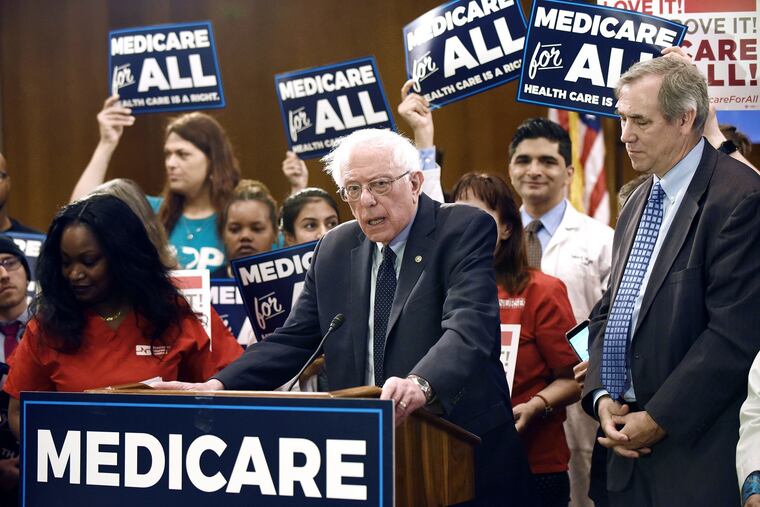Medicare for All could bring higher wages, but not for everyone | Opinion
Economists believe that when the premium goes away, at the same salary workers become are a bargain and employers will want to hire more of them. Employers who compete to hire workers will bid up wages until they rise by the amount of the bargain — the original cost of the employer contribution.

Two models for redesigning our health insurance system both involve replacing private insurance and out-of-pocket payments with public insurance subsidized by tax collections. Whether the solution is Medicare for All (with no explicit premium or out-of-pocket payments) or a more heavily subsidized Medicare-like public option added to Obamacare, these plans promise the eventual replacement of all or a large part of current privately insured payments by public ones, immediately or sometime in the future.
Taxes and death are both certain, but how about getting your money back from the private sector if you are one of the 150 million Americans covered by employer-sponsored insurance? It is appropriate for presidential candidates to be coy about what kind of a tax increase and for whom would accompany any change in our medical care and financing system. Most obviously, there is uncertainty about what Congress would be willing to enact. However, even greater uncertainty exists about what will happen to the billions of dollars now paid through the private sector as employment-based group premiums (whether from workers or employers) and out-of-pocket payments. If you don’t need insurance from your employer any more, how do you get your money back?
If you get your insurance through your job, you likely see the premium you pay on your pay stub. If your employer offers different plans, your premium may be higher if you chose a more generous option. You should get that back as take-home pay, though you will then lose some of that return because you will have to pay income and payroll tax on it. However, that explicit payment typically only represents 20% to 30% of the total premium; there will also be an employer contribution that your employer will no longer need to make. Where will that money go?
Economists like me believe that the workers in a local market will for the most part get back the employer contribution. Here is the story we tell. When the premium goes away, at the same salary workers become are a bargain and employers will want to hire more of them. Employers who compete to hire workers will bid up wages, and will keep doing so until wages rise by the amount of the bargain — the original cost of the employer contribution.
If you believe our story you may also think we have a bridge to sell you — but there is pretty good evidence that when the costs of benefits have risen, wages have fallen. So why shouldn’t it work in reverse? Of course you won’t be able to keep it all because you will have to pay taxes on the money (taxes you avoided by taking the money as a health benefit). Workers would get back the approximately $1 trillion plus spent on employer-provided health insurance, though they would have to pay more than $200 billion of that in taxes. Still, this net dividend would offset much of the higher middle class taxes.
Senator Bernie Sanders does not trust this idealized version of a market, so he would contemplate passing a law requiring employer giveback, effectively having the government set wages. That may be too much Democratic Socialism for our system to swallow. However, there is another reason for uncertainty. You will get back the average employer contribution toward insurance if you are the average employee, in terms of wages and health risk. What if you were young, with less seniority but great health? Then you did not cost the employer that much for your health benefits, so you would get back less than average in a wage bump. But if you were near age 60 and much more costly to insure, you might have taken a bigger cut in wages, so you should get back more money.
Maybe, but economists don’t really know how the employer-paid benefits costs are distributed across workers within a firm, and neither do you. So there will be considerable uncertainty, with the possibility of the wage adjustment varying across workers by age.
The point is that this major offsetting factor in the Sanders-Warren arithmetic could come out very differently for different people even at the same level of income and income tax. At any income level, middle class workers will pay the same additional taxes regardless of age or health status, but the money they will get back as higher wages is surely uncertain and likely lower for younger workers.
This unavoidable ambiguity is not a reason to change your political sentiments, but it does mean that the pocketbook impact of Medicare for All of any flavor is far from a sure thing. When the details of each plan come out, not all may be winners. That fact may give many of us pause.
Mark V. Pauly, is Bendheim Professor in the department of health care management and professor of business economics and public policy at The Wharton School of the University of Pennsylvania.